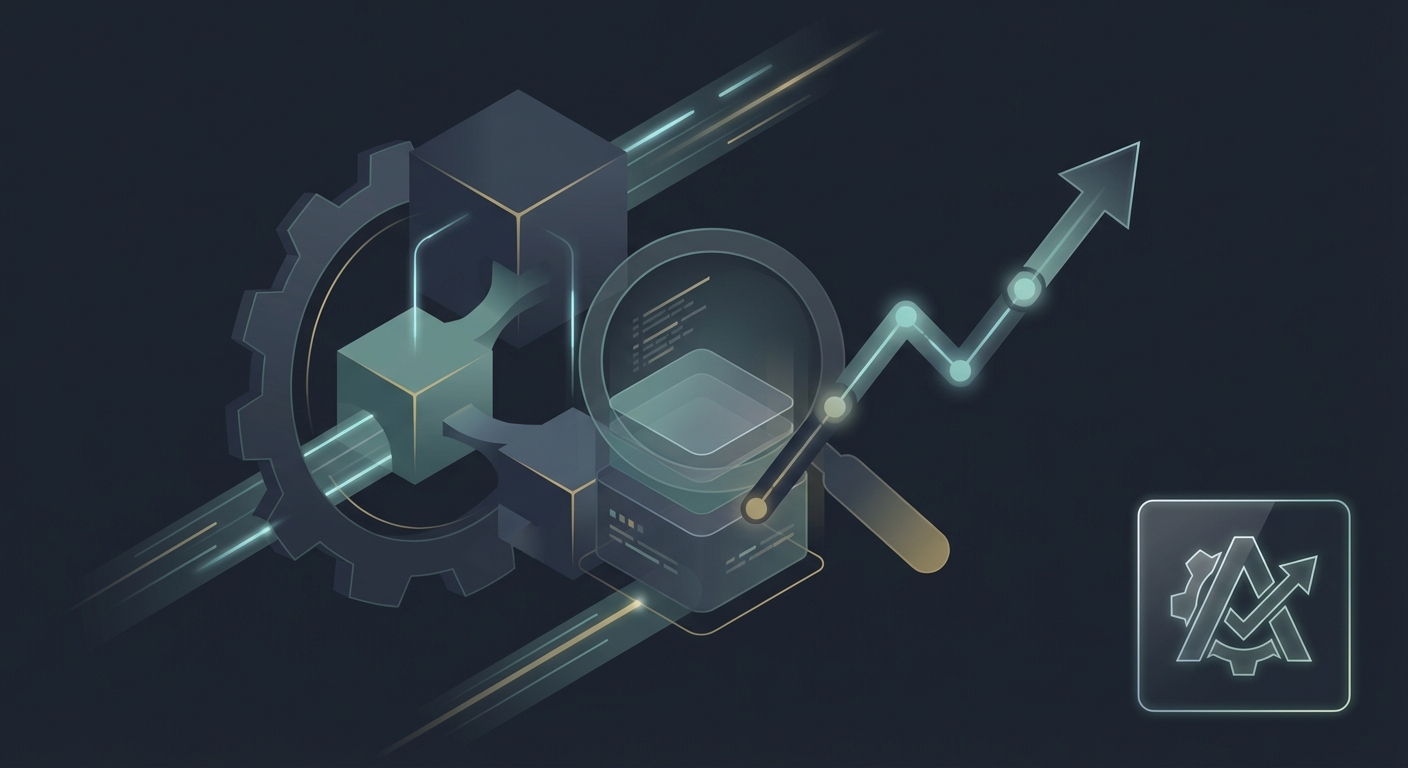Recommended AI Tools for Book Writing
TL;DR
Introduction: The AI Revolution in Book Writing
Okay, so, ai is kinda taking over, right? But what if it could help you write that book you've been putting off? It's not about robots becoming writers, but more like having a super-smart assistant.
- AI is making waves: From generating plot ideas to polishing prose, ai tools are popping up everywhere in the writing and publishing world. It's kinda wild.
- Assisting, not replacing: Think of ai as a co-pilot, not the pilot. It can handle the grunt work, freeing you up for the creative stuff. Like, you focus on the story, ai can help with the grammar... or something.
- Addressing the doubts: Will ai steal our jobs? Will everything start sounding the same? These are valid concerns, but the tech is still new. It's all about finding the right balance, you know?
- Ethical Considerations: What about copyright? Who owns the content, the author or the ai? These are questions we have to ask. As White & Case LLP notes, copyright law currently provides limited protection to ai-generated content.
For example, ai can help brainstorm character names or even generate different plot twists based on your initial idea. It’s like having a never-ending supply of ideas! Pollinations.AI is an open-source platform with text & image generation apis.
Ready to dive in and see which ai tools are worth your time? Next up, we'll look at tools for brainstorming and outlining.
AI Tools for Idea Generation and Outlining
Okay, so you've got an idea, but it's kinda...fuzzy? That's where ai can really shine, helping you bring that spark into focus. Think of it as a digital muse, but, you know, less pretentious.
Novel Factory
- What it does: Novel Factory is designed to help writers structure their novels from the ground up. It offers tools for character development, plot planning, world-building, and even scene generation. It's like a digital workbench for your entire book.
- Pros: Great for getting organized, helps overcome writer's block with structured prompts, good for developing complex plots and characters.
- Cons: Can feel a bit rigid if you prefer a more freeform approach. Might have a learning curve for some users.
- Pricing: Typically offers a one-time purchase or subscription model. Check their website for current pricing.
- How to use it effectively: Use its character questionnaires to flesh out your protagonists and antagonists. Employ its plot outlining features to map out your story's arc, and then use its scene generation to kickstart your writing.
Jasper.ai
- What it does: Jasper.ai is a versatile ai writing assistant that can help with various writing tasks, including brainstorming, outlining, and drafting. It uses advanced language models to generate human-like text.
- Pros: Highly adaptable, can generate a wide range of content, good for creating detailed outlines and expanding on ideas. Offers templates for different writing needs.
- Cons: Can be expensive, especially for heavy users. The output sometimes needs significant editing to match a specific voice.
- Pricing: Subscription-based, with different tiers depending on usage and features.
- How to use it effectively: Input your core idea and ask Jasper to generate a chapter outline. Then, use its "Boss Mode" to write specific sections based on your outline points, providing clear instructions for tone and content.
Pollinations.AI
- What it does: Pollinations.AI is an open-source platform that offers text and image generation through APIs. While it's a broad tool, its text generation capabilities can be leveraged for creative writing.
- Pros: Open-source and flexible, can be integrated into other workflows via APIs. Good for generating raw text snippets or exploring different stylistic approaches.
- Cons: Requires more technical know-how to utilize its full potential, especially for book writing. Less user-friendly for non-developers compared to dedicated writing software.
- Pricing: Often free for basic use or has a pay-as-you-go model for API access.
- How to use it effectively: For book writers, you might use its API to generate variations of sentences or short paragraphs based on specific prompts, then integrate these into your drafting process. It's more of a building block than a complete solution.
So, yeah, ai isn't gonna write the book for you, but it'll definitely help you build a solid foundation. Next, we'll get into how ai can help you actually write the thing.
AI Writing Assistants for Drafting and Prose Refinement
Okay, so you've got your outline... now it's time to actually write something. But staring at a blank page is the worst, right? Luckily, ai can help you get those first words down.
- AI-driven drafting is all about getting something—anything—on the page. Tools offer sentence completion, kinda like predictive text on steroids. You give it a prompt or a starting sentence, and it'll suggest ways to continue. It's not magic, it's just really good at predicting what words should come next based on the massive amounts of text it's been trained on.
- Paragraph generation can help flesh out ideas, but, remember, it's a starting point. Don't just copy/paste whatever the ai spits out, or you're gonna sound like a robot. The problem with just copying is that ai doesn't have your unique experiences or your specific vision. It can also sometimes make up facts or present information in a way that's factually incorrect, even if it sounds plausible. You need to fact-check everything and ensure it aligns with your story's logic and your authorial intent. Think of it as getting a rough sketch that you then have to paint over and refine.
- Maintaining your voice is key. It's easy to let the ai take over, but your book needs your personality. Think of the ai as a tool, not a ghostwriter.
You can feed ai tools snippets of your existing writing to try and mimic your style. It's not perfect, but it's better than nothing.
Next up: polishing your prose.
AI Tools for Editing and Proofreading
Ever wish you had a second pair of eyes... or, like, an ai that never gets tired of proofreading? These tools can do just that!
- Spotting plot holes becomes way easier; ai can track character arcs and timelines, pointing out inconsistencies you might miss because you're, you know, in the story. Some tools can analyze your manuscript for pacing issues, repetitive phrasing, and even suggest areas where tension might be lacking.
- Clarity and flow get a boost with ai suggestions. It's like having a super-critical editor, but, hey, it doesn't hurt your feelings. They can flag awkward sentences, suggest stronger word choices, and help ensure your paragraphs transition smoothly.
- Beta readers ai? Yep, some ai can act as a first reader, giving you feedback before you unleash your manuscript on real humans. These tools can analyze sentiment, identify common reader pain points, and even offer basic plot feedback by looking for common narrative structures and potential deviations. While they can't replicate the nuanced emotional response of a human reader, they can provide a valuable initial layer of critique.
Next up, let's talk about making your book look as good as it reads.
Beyond the Text: AI for Cover Design and Marketing
So, you've written the next great novel, but how do you make it look like one? Turns out, ai can help with that too!
- Cover design ain't just slapping a pretty picture on the front. ai tools can generate concepts based on genre, themes, and even target audience. You can input keywords and stylistic preferences, and the ai will churn out a range of visual ideas that you can then refine or use as inspiration for a human designer.
- Marketing materials are a must, and ai can assist with creating social media posts, ads, and compelling book descriptions. It can help you craft catchy taglines, summarize your plot effectively, and even suggest ad copy tailored to different platforms.
- Targeting readers is key. AI can analyze data to help you find the right audience for your book. This involves looking at market trends, identifying demographics of readers who enjoy similar genres, and analyzing online behavior to pinpoint where your potential readers spend their time. It can help you understand who is most likely to buy your book and where to best reach them with your marketing efforts.
On to the final step: Launching your book!
Ethical Considerations and the Future of AI in Writing
Okay, so, we've talked a LOT about how ai can help with writing, but, like, what about the ethics of it all? It's not all sunshine and roses, ya know?
- Copyright Chaos: Figuring out who owns what when ai's involved is tricky. As White & Case LLP pointed out earlier, current copyright laws don't really cover ai-generated content. This means that if an ai creates something, it might not be eligible for copyright protection, leaving its ownership in a gray area.
- Authenticity Alert: Are we gonna lose our unique voices if we rely too much on ai? It's easy to fall into the trap of letting the ai do all the work, but then everything starts sounding the same. The danger is that our writing becomes generic, lacking the personal touch and original thought that makes a book truly compelling.
- Bias in AI: AI models are trained on existing data, which can contain biases. This means that ai-generated content might inadvertently perpetuate stereotypes or present a skewed perspective. It's crucial to be aware of this and actively work to counteract it in your own writing.
- Transparency: Should you disclose when you've used ai in your writing process? This is a developing conversation. Some argue for full transparency, while others believe that as long as the final work is yours and edited to your standards, disclosure isn't necessary. It's a good idea to stay informed about industry standards and reader expectations.
The future? ai will probably become more like a collaborator, helping us brainstorm and refine our ideas. But, we gotta make sure we're still the authors, you know?




